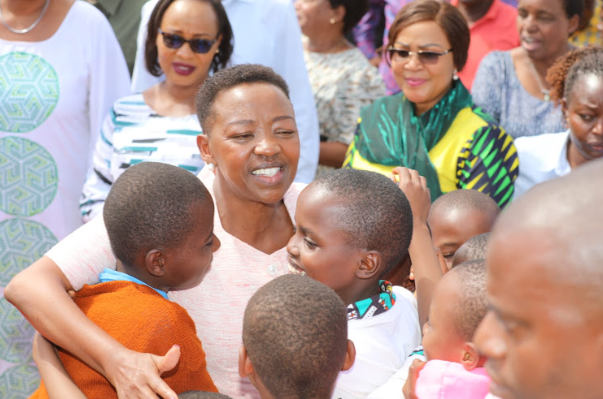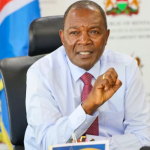Richard Mativu, the director of Sense International Kenya, emphasized the importance of ensuring inclusivity in all schools to support learners with disabilities.
He highlighted the significant challenge of a shortage of teachers who understand sign language in the country’s education sector. Mativu made these remarks during the International Day of the African Child event held at Ziwani School for the Deaf in Mombasa.
He mentioned that Sense International Kenya collaborates with the government and parents of children with disabilities to address these issues and improve educational opportunities for learners with disabilities.
The call for county and national governments to prioritize inclusivity underscores the ongoing efforts to create an accessible and supportive educational environment for all students.
This year’s International Day of the African Child theme is education for all children in Africa therefore the time to act is now,” Mativu said.
Sense International, which supports children with severe or complex disabilities, hopes that such learners will be enrolled in regular schools as opposed to special schools.
However, the current education system and curriculum do not meet the needs of special learners, which affects their performance in school.
“Learners with special needs do not excel in their exams not because they don’t understand but because of the education system that we have and this is something which needs to be addressed by the government,” he said.
“We want the government to spearhead training of Learner Support Assistants (LSA) and ensure they are taken in all schools to support children with disabilities.”
To address the need for trained personnel who can support learners with disabilities, Sense International Kenya has partnered with the Kenya Institute of Special Education (KISE) to train teachers, parents, and community members to become Learning Support Assistants (LSAs).
Over the past two years, this initiative has resulted in 84 LSAs graduating from the program, who are now deployed in more than 100 schools across Kenya.
Faith Nyaboke, a programme officer at Sense International, highlighted the educational challenges faced by deaf children, emphasizing that many of them lag behind in language development and overall educational progress.
She attributed this delay to the fact that deaf children often do not have access to sign language early enough, as they are frequently enrolled in school later than their hearing peers.
This collaboration aims to bridge the gap by providing essential training to LSAs, enabling them to support deaf children more effectively within school environments.
By empowering teachers, parents, and community members with the skills to communicate through sign language, Sense International Kenya seeks to improve the educational outcomes and inclusivity for deaf learners across the country.
“As an organisation, we did a research and found out that late enrolment of these children to school contributes to their poor performance because many parents take the children to school when they are 10 to 14 years,” she said.
“So when they come to school, they find themselves behind compared to their fellow learners from other regular schools.”
Contrary to common assumption, language is not the same as speech. For a deaf child, learning language means knowing how to use signs.
As a result, children with impaired hearing may recognise things by sight, but fail to know their names.
“In our project where we support the children and schools to acquire language, we have trained LSAs through the 2018 sector policy which directs that regular schools need to have LSAs in order to help teachers and learners with disability acquire their education,” she said.
Faith Nyaboke highlighted the challenges faced by children with disabilities, particularly the discrimination they encounter from society. She emphasized that there is often a lack of recognition of the importance of enrolling children with impairments in schools, despite every child having the right to access education and learn.
Nyaboke pointed out that only a small number of children with disabilities have been enrolled in schools so far. Furthermore, she noted that the number of schools that accept children with disabilities remains limited.
Although these schools may have trained teachers, they struggle when faced with an increase in the number of learners. This situation leads to a high ratio of children to trained teachers, resulting in challenges for the facilitators who become overwhelmed and are unable to effectively support the learners.
“This is why we need LSAs in class for them to help teachers reduce their workload. We urge the government to employ LSAs in all schools so that they can support these children in class,” Nyaboke said.



